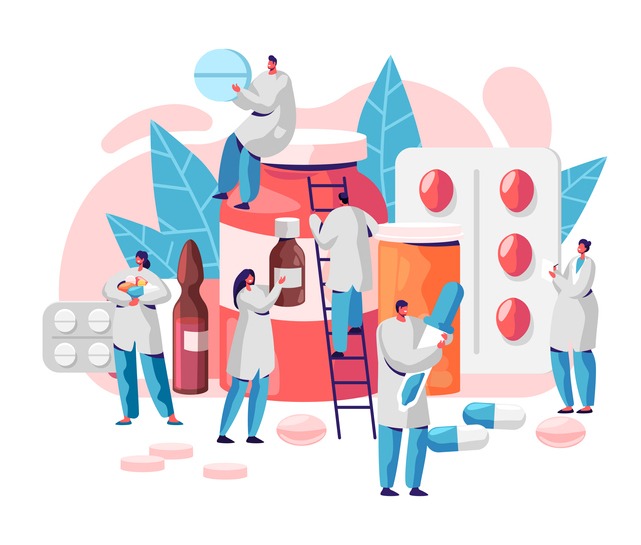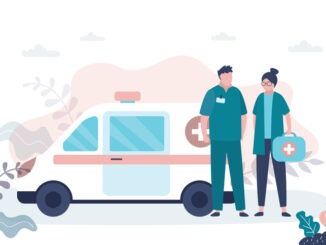
The role of the network pharmacy technician is vital within a PCN – but what does the role entail? And what should you consider when recruiting them within your team?
CREDIT: This is an edited version of an article that originally appeared on The Primary Care Network
Primary Care Network Pharmacy Technicians are based in-practice and as per Health Education England pharmacy careers guidance, they support the delivery of safe, effective and efficient systems for medicines optimisation, repeat prescribing, reducing medicine waste and maximising patient outcomes.
They typically work under the supervision of a pharmacist and are registered healthcare professionals who are responsible and accountable for their own accurate and safe practice.
With the recent change (and reduction) in the Investment and Impact Fund indicators, there has been a shift in what the Pharmacy Technicians cover. They have been freed of some of the burden related to IIF (work which was previously an add-on to their role) and are consequently able to focus on their core responsibilities and tasks, which will often vary depending on the needs of their PCN.
The good news is that the role can be tailored according to individual network requirements however, the mainstays of what a Pharmacy Technician can deliver (and are trained in) are as follows:
- Responding to patients’ questions both face to face and over the phone, referring problems or queries to the pharmacist / GP.
- Reviewing clinical correspondence (including discharges and clinical letters) and making the appropriate medication changes and arranging appropriate follow up.
- In line with the above, checking the accuracy of any changes made by Practice admin teams.
- Participating in medication audits, paying particular attention to patients who are prescribed more high-risk drugs and ensuring timely and effective monitoring is in place.
- Providing advice and information to GPs, staff, and patients to support the improvement of prescribing safety, quality, cost-effectiveness, and the appropriate use of medicines to get the best outcomes for patients.
- Assisting in the monitoring and management of prescribing budgets and the preparation of evidence-based resources and information that support cost-effective prescribing.
Overall, the main objective of the role is to support the delivery of a safe and effective pharmacy service within the network and to reduce the workload burden on GPs and Pharmacists.
What types of work might they be expected to manage within the PCN?
These are a few, more specific, examples of what Pharmacy Technicians who are already working within Primary Care are involved in right now:
- Conducting patient reviews and updating practice patient records either within the context of an onsite clinic, domiciliary visits and / or nursing and residential care homes. A Pharmacy Technician will generally see the patient ahead of a GP or pharmacist consultation and can manage physical patient checks such as weight, BMI, and blood pressure, as well as reviewing drug dosage/s, changes in treatment options and medicines compliance (referring and flagging any areas of concern or follow up to the GP). Some practices call this a “Pre” Structured Medication Review (SMR) to reduce the time required with a pharmacist.
- All aspects of medicine reconciliation, for example, a Pharmacy Technician can compare and review any medication/s prescribed at the point of a patient’s discharge from hospital and document and update the Primary Care record. They will also take responsibility for regularly reviewing the status of a patient’s medications, more generally, flagging any concerns to the pharmacist and GP, when required to.
- As part of the process of managing a patient’s discharge from secondary care, a Pharmacy Technician will also check for clinical results, download these from the hospital system and input into the GP record, as well as reviewing and ensuring any required follow ups are arranged with the patient.
- Conduct condition reviews in areas which they are competent in, such as hypertension or anticoagulation, as examples. While a technician will be able to review the adherence to medication, ensure physical and blood checks are up to date, determine whether a new medication is required, and / or check whether an amendment to current dose is required, this will need to be approved by a prescribing clinician first.
Most Pharmacy Technicians still also maintain an awareness of the Quality Outcomes Framework (QOF) and keep this in mind when they engage in any patient interaction. They focus on areas such as smoking status and weight management e.g. (and signpost to wider support services, where appropriate).
Recruitment – challenges and key considerations
As with all of the roles which are new to Primary Care, this may very well be a Pharmacy Technician’s first experience of working within the sector. Levels of experience may vary and if they are starting from scratch, appropriate training and support is required.
Some of the challenges faced by both parties are:
- Often there may only be one Pharmacy Technician employed per network, leaving them with no reference point locally.
- There continues to be a lack in understanding of what a Pharmacy Technician can do and conversely, a tech who is new to Primary Care won’t understand where they fit either.
In terms of managing a successful recruitment (and induction) into your PCN team:
It may be helpful to involve your pharmacist in the recruitment and induction of your Pharmacy Technician. Be mindful though that there are varying degrees of experience when it comes to leading and managing a pharmacy team (and also no set structure). This can also be managed equally well by an appropriately skilled Pharmacy Tech too.
Map any current gaps in service, baselined against the ask of the GP contract, local needs, and any key performance indicators, to pinpoint where your technician can be most effective.
Check out the Primary Care Pharmacy Technician vacancies on NHS Jobs to get a flavour of how other PCNs are structuring their job descriptions.
Direct your Pharmacy Techs to the PCN Pharmacy Technicians private Facebook group. There is a wealth of useful resources available and with 765 members (and counting), it offers techs direct access to informal peer support.


Be the first to comment